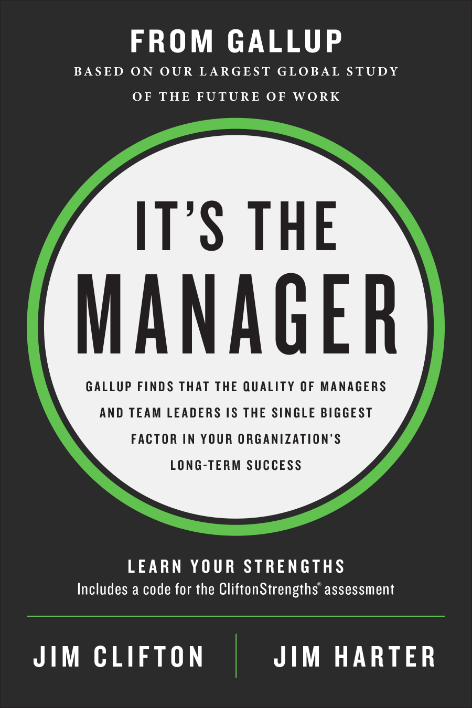Story Highlights
- Leaders should use AI to make better decisions
- The best leaders will master the art of team building and coaching
- Without a strong guiding purpose, AI fails to reach its potential
Companies plan to spend big money on AI -- as much as $77.6 billion by the year 2022 according to some estimates, with a compound annual growth rate (CAGR) of a whopping 37.3%.
That spending is an investment that can be expected to pay rich dividends in the future. AI is a competitive advantage and leaders would be wise to ensure their companies are AI-ready. But how will the rapid rise of AI change what's expected of leaders -- today and in the future?
According to It's the Manager, of all the traits of successful leadership Gallup has studied, most can be "distilled down to two elements" -- bringing multiple teams together and great decision-making.
Optimized decision-making is what AI is for. So, considering the critical importance of leadership and the vast sums businesses spend on AI, a sub-par leadership development strategy and misdirected teams will certainly stand in the way of optimizing what AI has to offer.
Help Leaders Make the Most of AI When Facing Critical Decisions
Gallup has conducted 450 studies with more than 50,000 leaders -- and we found that making great decisions is related to nuanced discernment, emotional pattern recognition, relationship building, critical thinking and creativity. Those talents are fundamental to what leaders need to turn AI into what customers want. But building leadership competencies for the age of AI requires predicting future leadership requirements.
This isn't just rewriting a competency to sound "digital ready" or certifying leaders as digital-fluent. Much of how AI will reshape our future is yet unknown. Indeed, 85% of the jobs that will exist in 2030 haven't been invented yet. Start by collectively analyzing, intuiting and imagining the future of your market and company. Involve leaders, managers and employees in this effort. "Backcasting" helps you build a template to prepare leaders today for what's to come tomorrow.
Leaders must recognize that as the world gets more digital, human talent gets more valuable. Especially the collective potential of teams.
Next, instead of putting emerging leaders through endless hours of training to be digitally fluent, expose them to breakthrough experiences that help shape their agility, adaptability and resilience competencies. These experiences would force leaders to make decisions under pressure, deal with their biases and their presumptions -- and ultimately help them develop an arsenal of experiences they can draw upon in an AI-driven business landscape.
The challenges they are likely to face in the future might be very familiar or they might be very different, but early exposure is exactly the kind of preparation leaders will need to make high-stakes decisions in high-pressure situations.
Finally, encourage an open mindset and culture. All your digital leadership development strategies will fail if leaders are not allowed to experiment, fail and try again.
Harnessing Collective Potential
Bringing teams together is a matter of intuiting, coaching and inspiring.
Organic growth results from doing all of this in the service of customers. Leaders must recognize that, as the world gets more digital, human talent gets more valuable. Especially the collective potential of teams.
Teams will be increasingly remote, geographically dispersed and hybridized -- combining human talent and AI functionality -- and people want more coaching, less bossing. Indeed, a culture of coaching is essential in the increasingly augmented future.
Instead of putting emerging leaders through endless hours of training to be digitally fluent, expose them to breakthrough experiences that help shape their agility, adaptability and resilience competencies.
Companies who wish to be agile require such cultures. The essential characteristics of people and teams who flourish in an agile organization include the ability to operate in ambiguity without losing focus, a bias toward outcome over process, and the ability to contribute by being a team member. Coordinating those human qualities on behalf of customers requires human talents of leaders that AI can help to establish but will certainly not replace.
Leaders are expected to chart the course here. What leaders do, everyone else comes to do, so a leader's approach is likely to be copied. Help it along - strengths-based development improves business outcomes, but a deep sense of collective self-awareness can also help people find stability in the accelerated, augmented, confusing future of work. It may also encourage people to do the upskilling they need to perform in a changing business environment.
Purpose Will Fuel AI
Ultimately, your AI needs purpose. Without a purpose, new technology can be easily aimed at the wrong objectives or misused by those who control it. Even the most conscientious leader can make a mistake, especially when the AI goes in search of inspiration and purpose, not the other way around. Perhaps that's why 85% of AI projects fail.
Gallup knows that a focus on purpose and strengths accelerates performance, so leaders should train their sights on the things that truly unleash their team's creative potential and thus the power of AI. That will aid in decision-making about where AI will produce the results customers want.
Meanwhile, keep connecting people with their innate talents and strengths and with the company's purpose. While AI and augmentation will increase capability, only a true understanding of strengths and talents will help leaders drive employees' capacity for performance. Tie the company's collective strengths to the company's differentiated purpose to clarify the most productive use of AI.
But making products out of these patterns demands leaders who can build great teams and make great decisions. Useful innovation -- defined as that which creates products that customers value -- is the result of nuanced judgment and good leadership decisions made fast.
Aiming AI at game-changing products and solutions requires leaders who can coach their teams to think critically and creatively. AI gives insight, but products should be developed by a team brought together around a very sophisticated understanding of what customers truly value. AI offers opportunity for them and for companies -- it's up to leaders to wield those opportunities well.
Give leaders breakthrough experiences to transform their performance. Gallup knows how.
- Partner with Gallup to build a world-class leadership development program.
- Purchase your copy of the Amazon bestseller It's the Manager to get 52 of Gallup's greatest discoveries from decades of research into the science of management -- breakthroughs that link to real business outcomes.
- Tap the infinite potential of your teams. Register your leaders and managers for Gallup's Leading High-Performance Teams course.





